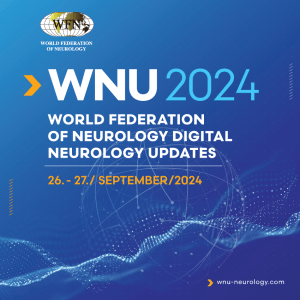
Epilepsy Society and London South Bank University presented their second annual joint healthcare professionals conference on epilepsy. The focus of this year’s conference was the changing landscapes of the epilepsies.
Professor Ley Sander, Epilepsy Society’s medical director, delivered the first plenary at the event held at London South Bank University. He spoke about the paradigm shift in epilepsy from a model of treatment based on experience and observation to one based on a fuller knowledge of an individual’s genetic profile and on a better understanding of the way in which different anti-epileptic medications work.
The genetic causes of epilepsy and what we are learning from research, was the crux of Professor Sanjay Sisodiya’’practice.
Professor Sisodiya said that currently one in three people visiting Epilepsy Society’s Chalfont Centre left with a different diagnosis to the one they had had on arrival.
Differential diagnosis of non epileptic seizures was the plenary given by Dr Brent Elliot, Epilepsy Society’s honorary consultant neuropsychiatrist. He said Non Epileptic Attack Disorder (NEAD) and Functional Neurological Disorder (FND) significantly affect the quality of life of both patient and carer. Adding that it’s estimated that the annual health costs of patients presenting with NEAD symptoms is £18 billion, with treatment falling squarely in the gap between neurology and mental health commissioning.
Professor Philip Patsalos, the charity’s consultant clinical pharmacologist spoke about the uses and benefits of therapeutic drug monitoring (TDM). He said his unit at Epilepsy Society’s Chalfont Centre was the only one stop shop in the country for TDM and the only place in the UK to carry out saliva testing. He said monitoring drug levels in saliva can offer a convenient and painless alternative to taking blood samples when helping to optimise the level of epilepsy drugs on an individual basis.
Delegates also had the opportunity to attend two of four breakout sessions which covered:
- Service improvement for better outcomes, given by Juliet Ashton, Epilepsy Society’s specialist epilepsy commissioning nurse consultant;
- Epilepsy and learning disability: risk management and capacity, by Jennifer Long, Epilepsy Society service manager;
- Supporting evidence for claims, given by Alban Hawksworth, Independent benefits specialist;
- The value of the pharmacist in the multidisciplinary team, given by Dr Trudy Thomas, Director of taught graduate studies, Medway School of Pharmacy.
The conference by Epilepsy Society and LSBU was both interesting and stimulating, with delegates reporting they had gained knowledge and insight into developments within epilepsy management.
ACNR 2014;15(1):39. Online 15/04/15

